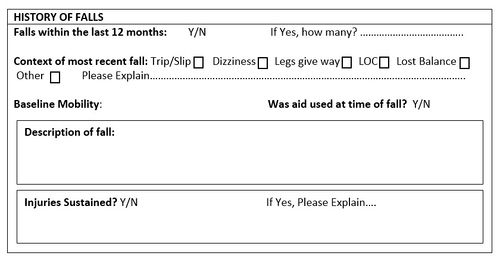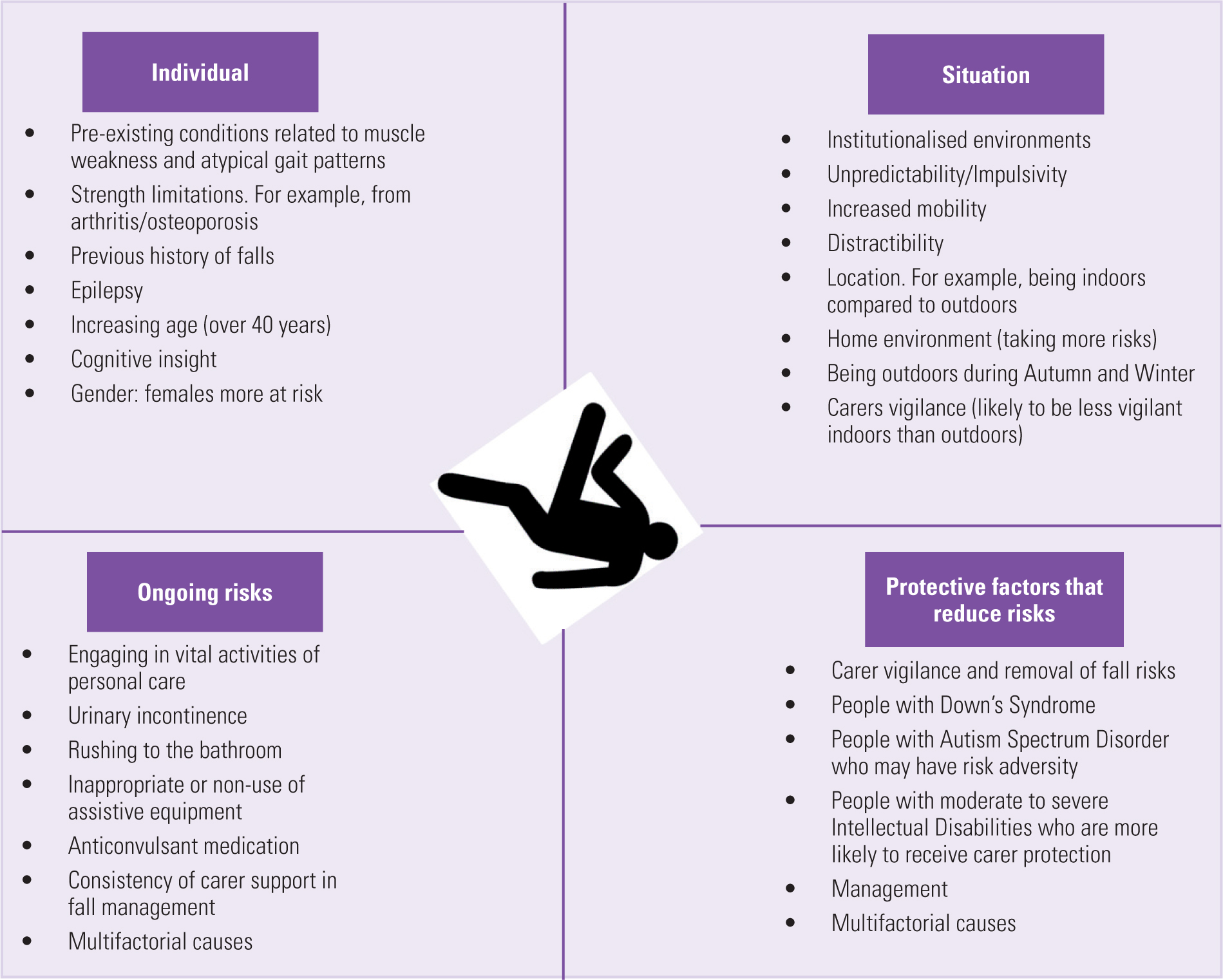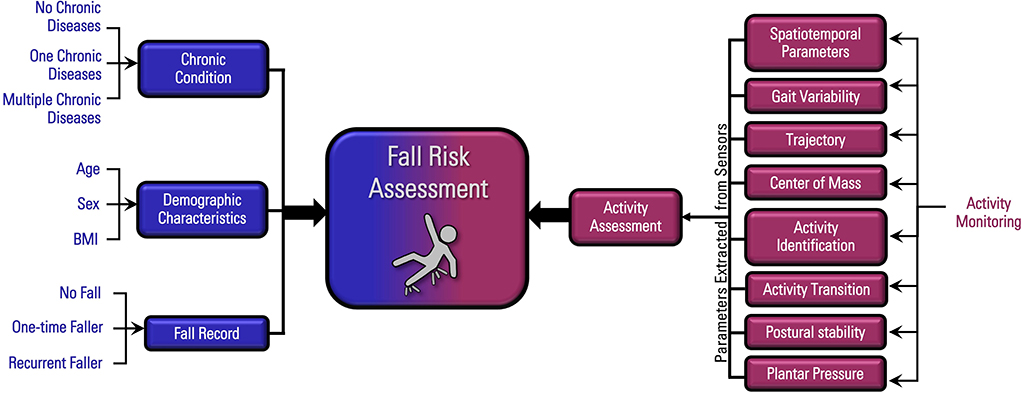Some Ideas on Dementia Fall Risk You Should Know
Some Ideas on Dementia Fall Risk You Should Know
Blog Article
Not known Details About Dementia Fall Risk
Table of ContentsThe Best Guide To Dementia Fall RiskThe Buzz on Dementia Fall RiskSome Of Dementia Fall RiskOur Dementia Fall Risk StatementsUnknown Facts About Dementia Fall Risk
In the area, insufficient road illumination or unguarded creeks and garbage dumps may additionally create mishaps. Autumns Threat Evaluation Device (FRAT) is a 4-item falls-risk screening tool for sub-acute and residential care. The FRAT has 3 areas: fall threat standing, threat variable checklist, and action strategy. An Autumn Threat Standing consists of information about background of current drops, drugs, mental and cognitive standing of the patient.If the patient scores on a threat factor, the corresponding number of points are counted to the client's autumn danger score in the box to the much. If a client's autumn risk rating totals five or greater, the person is at high threat for falls. If the patient ratings only 4 factors or lower, they are still at some risk of falling, and the registered nurse ought to utilize their best medical assessment to handle all autumn risk elements as part of a holistic treatment strategy.
These typical strategies, in general, aid develop a safe setting that minimizes unintentional drops and defines core precautionary actions for all patients. Signs are important for individuals in jeopardy for drops. Healthcare suppliers require to acknowledge who has the condition, for they are accountable for carrying out activities to advertise person safety and avoid drops.
Everything about Dementia Fall Risk
Wristbands must consist of the individual's last and first name, date of birth, and NHS number in the UK. Information need to be printed/written in black against a white history. Just red color must be made use of to indicate unique patient status. These referrals follow present advancements in person recognition (Sevdalis et al., 2009).
Things that are too much may call for the patient to reach out or ambulate needlessly and can possibly be a threat or add to drops. Assists avoid the person from going out of bed without any support. Registered nurses reply to fallers' telephone call lights faster than they do to lights initiated by non-fallers.
Aesthetic impairment can considerably trigger falls. Hip pads, when worn appropriately, might minimize a hip crack when loss occurs. Maintaining the beds closer to the floor decreases the danger of drops and serious injury. Placing the bed mattress on the floor considerably decreases loss danger in some healthcare settings. Low beds are made to reduce the distance a client drops after moving out of bed.
How Dementia Fall Risk can Save You Time, Stress, and Money.
People who are tall and with weak leg muscles that try to rest on the bed from a standing setting are most likely to drop onto the bed since it's as well reduced for them get more to decrease themselves securely. Also, if a tall individual efforts to stand up from a reduced bed without assistance, the client is most likely to drop back down onto the bed or miss the bed and fall onto the flooring.
They're designed to promote timely rescue, not to protect against drops from bed. Apart from bed alarm systems, increased supervision for risky people also may help avoid drops.

People with a shuffling stride rise loss chances dramatically. To reduce fall threat, footwear should be with a little to no heel, slim soles with slip-resistant walk, and support the ankle joints. Encourage person to utilize nonskid socks to avoid the feet from gliding upon standing. However, encourage individuals to use appropriate, well-fitting shoesnot nonskid socks for ambulation.
The smart Trick of Dementia Fall Risk That Nobody is Discussing
Patients, specifically older grownups, have reduced visual capacity. Lights an unfamiliar setting helps enhance presence if the individual need to stand up at night. In a research, homes with ample illumination record less drops (Ramulu et al., 2021). Improvement in illumination in the house might reduce fall rates in check my reference older adults (Dementia Fall Risk). The usage of stride belts by all healthcare carriers can promote safety and security when aiding patients with transfers from bed to chair.

Sitters are reliable for ensuring a safe, secured, and safe environment. Researches showed extremely low-certainty evidence that caretakers minimize loss risk in acute treatment medical facilities and only moderate-certainty that options like video tracking can minimize caretaker usage without enhancing autumn threat, suggesting that sitters are not as helpful as at first believed (Greely et al., 2020).
The 7-Minute Rule for Dementia Fall Risk

Boosted physical conditioning lowers the risk for falls and limits injury that is received when autumn transpires. Land and water-based exercise programs may be similarly valuable on balance and stride and thereby decrease the risk for falls. Water workout may contribute a positive benefit on balance and gait for females 65 years and older.
Chair Surge Workout is a basic sit-to-stand exercise that helps enhance the muscles in the thighs and butts and enhances movement and independence. The objective is to do Chair Surge workouts without using hands as the client becomes more powerful. See sources section for a detailed instruction on just how to execute Chair Increase workout.
Report this page